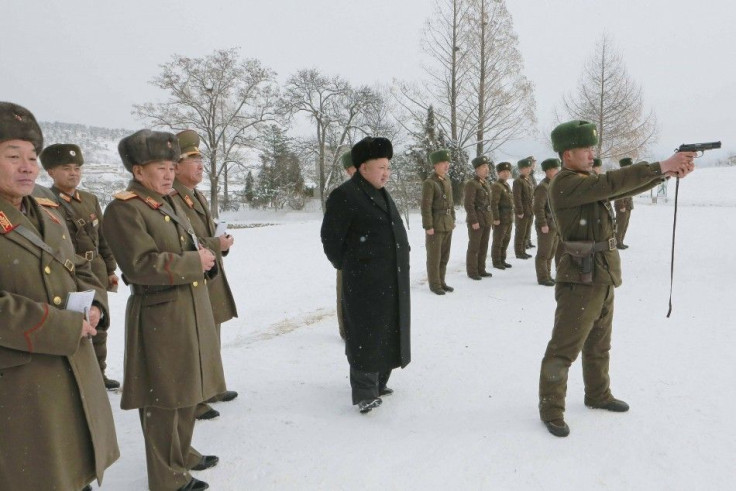US Seeks China’s Support to Pressure North Korea To End Its Nuke Plans

The U.S. bid to de-nuclearise Korean peninsula got a new impetus with China reportedly agreeing to "pressure" North Korea for giving up its nuclear plans. According to a top U.S. official, China has accepted that "pressuring North Korea is the key" to the de-nuclearisation of Korean peninsula.
The U.S. Secretary of State John Kerry already said in mid May that the United States and China are discussing the prospects of adding more sanctions on North Korea, which is "not even close" to taking steps to end its nuclear program. Incidentally, China happens to be North Korea's important trading partner and major ally, despite North's nuclear and missile tests causing some strain in their ties. "The Chinese agree that pressure has to be an important part of our approach on North Korea," Sung Kim, the U.S. special representative for North Korea policy, said at a media briefing in Beijing, reports Reuters.
China’s View
However, the Chinese government has not made any comment on the claim made by the U.S. official. For China, "denuclearisation" of the whole Korean peninsula, has a different perspective and is not the same plan mooted by the U.S. It wants the cleansing to cover the weapons held by U.S. forces in South Korea than blaming the North alone for proliferation.
Kim, who represented the United States in the talks with two important Asian allies-South Korea and Japan underscored the need to step up pressure on North Korea for giving up its nuclear ambitions. The talks were held in Seoul. He said the United States believed China was fully implementing the sanctions on North Korea under the mandate of the U.N. Security Council. Notably, Kim's visit to the region preceded a submarine-based ballistic missile launch by North Korea in mid May.
Unsuccessful Efforts
The Guardian reports that the task of engaging North Korea has never been easy and all negotiations so far had failed in halting the belligerent DPRK's nuclear development. There were attempts by Japan and South Korea to engage the secretive country, but the U.S is now taking the lead to bring about a resolution, though it never had a good history of dealing with the errant North.
There are also reports that said the U.S. tried to deploy Stuxnet computer virus for attacking North Korea's nuclear weapons program in 2010 but failed. A Reuters report said it was timed with the famous Stuxnet attack on Iran's nuclear program in 2009 that destroyed thousands of its centrifuges designed for enriching uranium. According to some U.S. intelligence source, Stuxnet's developers produced a virus that would activate when it interacts with Korean-language settings on an infected machine. But it did not work out.
(For feedback/comments, contact the writer at k.kumar@ibtimes.com.au)




















